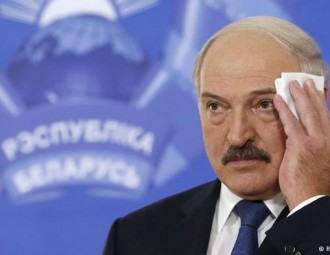Gallup Survey revealed how many people voted for Lukashenka at the presidential election
 Reuters V. Fedosenko
Reuters V. Fedosenko
19% of voters cast their ballots for Tatsiana Karatkevich, informed Andrei Dzmitryeu, one of the leaders of Tell the Truth! campaign, referring to the survey by Baltic Surveys/The Gallup Organization.
Andrei Dzmitryeu and Tatsiana Karatkevich presented the results of the research in Minsk on December 21.
According to the figures that were revealed by Baltic Surveys/The Gallup Organization, during the October 11, 2015 presidential elections in Belarus Aliaksandr Lukashenka received 51% of votes; Tatsiana Karatkevich got 19%; 15% were against all, 10% voted for Siarhei Haidukevich, and 3% for Mikalai Ulahovich.
The poll was carried out in Belarus from October 28 though November 13 using face-to-face interviews at the place of residence of respondents. A total of 1514 people were interviewed, Euroradio informs with the reference to BelaPAN.
All in all, at least 45% of votes were for an alternative to the incumbent. This is only 6% less than for Lukashenka and this "is almost half of society," Andrei Dzmitryeu noted.
According to the official results published by Central Elections Commission, Lukashenka received 83,49% of votes, Tatsiana Karatkevich - 4,42%, Siarhei Haidukevich - 3,32%, Mikalai Ulahovich - 1,67%. The presidential elections took place in Belarus on October 11.
-
03.01
-
07.10
-
22.09
-
17.08
-
12.08
-
30.09








































